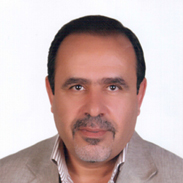Articles > > Barrack Races Against Growing Unrest in Syria to Achieve Lebanese Disarmament
Articles - Others - Date: 2025-07-23
Washington appears to be in a rush to disarm Hezbollah, working within extremely tight timelines, as if racing against the developments in Syria, which are reshaping Lebanese public opinion regarding Hezbollah's weapons and their purpose. Feelings of fear and anxiety about the future of Lebanon's various communities have intensified since the events on the Syrian coast, particularly in light of what is happening in Suwayda and its outskirts.
There are those who oppose Hezbollah's arms on the grounds that they defy the 'national state,' spanning sects and clans, including some who want to see their disarmament at any cost, and may even prefer the presence of Israeli Merkava tanks and F-35s instead. Many of them had sought Israeli protection and refuge years ahead of Sheikh Hikmat al-Hijri. These individuals seem incurably afflicted, unwavering in their positions even as they watch live images of the destruction of the Holy Family Church in Gaza and Mar Elias Church in Damascus. They always manage to cling to some delusion, despite their failed bets.
But not everyone who calls for exclusive state control of weapons belongs to this camp. There is a growing segment of Lebanese society, especially in light of the military campaigns conducted in support of Gaza and the defence of Southern Lebanon, that approaches the matter from an alternative perspective. They believe Lebanon needs breathing room, time to recover and rebuild, driven by a growing conviction that Hezbollah's arms can no longer fulfil their three intended functions in confronting Israel: Protection, deterrence, and liberation. These individuals, regardless of whether one agrees with their reasoning, deserve attention and are worthy of dialogue to bring about a broader national understanding.
However, the latest chapter in Syria's politics has sounded alarm bells across several Lebanese communities, not just the Druze, but also Christians, Alawites, Shiites, and urban Sunnis, including supporters of the families that have traditionally held Sunni political leadership. We are now seeing a softening in attitudes toward the issue of Hezbollah's weapons even within segments of political Maronism, starting with the Kata'eb [Phalange] Party, or at least some of its figures.
One repercussion of the Syrian developments since December 8 has been the growing role of Sunni fundamentalism, containing a Salafi (not just jihadist) character. This is not only apparent in Lebanon but across the entire Arab Mashriq. The entry of Arab clans into the Suwayda crisis has signaled the rise of a new player, one that has been previously underestimated. This is especially relevant since the clan communities are the ones most closely aligned with Salafism, often serving as its incubators. This is because the more widely adopted schools of Salafism are deeply rooted in Bedouin jurisprudence.
It is no coincidence that maps of jihadist Salafi distribution largely overlap with maps of clan distribution in most conflict zones, including along the frontlines between these groups and their adversaries, be they states or movements. It is no secret that Lebanon is the most fragile among the Mashriq states when it comes to absorbing the political reverberations created by Syrian politics. This is due to its history, geography, demography, the weakness of the state and its institutions, and the dominance of other identities over any unified national identity. It is this fact that explains the widespread anxiety and shifting priorities of the various parties involved in Lebanese politics. Inevitably, this will lead to a re-evaluation of existing alignments, though it may be too early to predict exactly how this process will unfold.
Washington is keen on containing the situation in Suwayda through settlements and truces that enable it to manage the crisis from a broader perspective that balances the conflicting interests of its regional allies, particularly in and around Syria. This stands in contrast to Israel, which has nothing to offer other parties except subjugation through brute force and submission to its hegemonic role in the region. This creates a degree of divergence between the two strategic allies, not over the end goals and broader designs of their shared strategy, but over the mechanisms and pace of implementing that strategy.
The U.S. approach to Syria enjoys support from influential Arab and Turkish allies, and it has also been welcomed and accepted by Syria's new administration. This is utterly reprehensible, especially given how the U.S., under Trump, has constantly contradicted itself. Tom Barrack's talk of a unified Syria does not negate previous U.S. statements in favor of religious and ethnic federalism. And the U.S. — which resorts to 'leaks' to express dissatisfaction with the conduct of the Israeli PM (as if he were an ill-behaved child) — exerts no effort to restrain him, nor does it apply any serious pressure to curb his belligerence. Instead, it provides cover and protection whenever the international community moves to condemn Israel's actions.
So, what do we conclude from all of this? And how are Lebanon and the issue of Hezbollah's weapons connected? The key takeaway is that until further notice, Syria is not headed for stability, and Israel has no interest in Syria's recovery or the revival of a national state there. This means that while Washington may differ with Tel Aviv on priorities, it will not pressure Israel meaningfully or hold it accountable for its actions, as many Arabs are hoping and counting on.
More dangerously, the new Syrian regime has once again proven that it lacks the soft power tools necessary for sound management of this transitional phase. Nor does it appear able to encourage participation in the new political system from the various Syrian communities. The new regime in Damascus appears divided within itself. If it leans too far into adapting to the requirements of the phase, it will face internal resistance; if it delays solutions and reforms, it will face external challenges and 'resistance' — to say nothing of its lack of competence and professionalism.
How will this affect Lebanon? It is perfectly evident that internal Druze divisions in Syria are spilling over into Lebanon's Druze community, albeit less intensely. The mobilisation of Syrian clans will weigh heavily on power dynamics within the Sunni community. Chaos erupting on Lebanon's Eastern and Northern borders could damage Lebanon at its very core, not just along its peripheries, threatening all sects and communities.
For this reason, Tom Barrack is racing against time to secure a Lebanese decision to disarm Hezbollah, seizing on the current calm in Suwayda. His mission to persuade and pressure the Lebanese to do what he wants, or rather what Israel wants, will become far more difficult if the chaotic scenario instigated and fueled by Israel prevails. Some of his Lebanese interlocutors, who are currently enthusiastic about disarmament, may grow less eager.
Israel is, of course, closely monitoring the situation. It has a heavy score to settle with Hezbollah and its weapons, and appears determined to do so. It is unlikely to miss the opportunity to build on the 'gains' it made in its recent war on Lebanon and to deepen them. It could enter the battlefield directly, not only through painful, destructive airstrikes, but also by making ground incursions in the Bekaa Valley targeting Hezbollah strongholds, in the hopes of breaking the party's ability to deter adversaries lurking behind the Eastern border. This would encourage them to replicate the experience of Hijri and his militias, which Israel provided protection and cover for, and drag Lebanon into Syria-style chaos.
I do not believe Washington would be concerned by such a development, even if it finds itself in a position of opposition or reservation towards Israel's actions. The Trump administration would support this scenario if the alternative were for Hezbollah to endure and remain armed. It would also support Syrian overreach into Lebanon, which Tom Barrack threatened to annex to 'Bilad al-Sham'. The U.S. would then blame Lebanon's political class for the collapse and instability, citing their hesitancy to commit to the disarmament demand, even as Washington refuses to provide any assurances that such disarmament would be paired with Israeli withdrawal from occupied Lebanese territory, the release of prisoners and captives, and an end to Israel's daily violations of Lebanese airspace and territory.
The disarmament issue was already complicated, and it has become even more so in light of the open-ended implications of the Syrian crisis, the intersecting interests and positions of many players (especially the increasingly brutal and influential Israelis), and the alignment of U.S. policy with the broader interests and goals of the fascist right-wing government in Tel Aviv.




